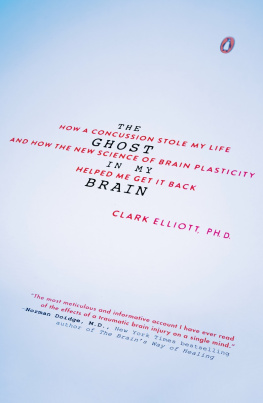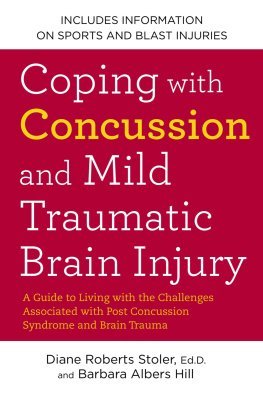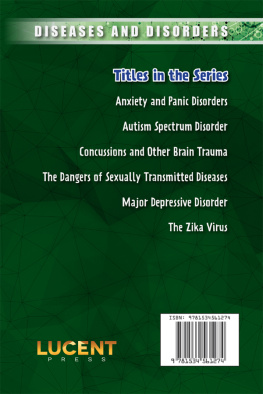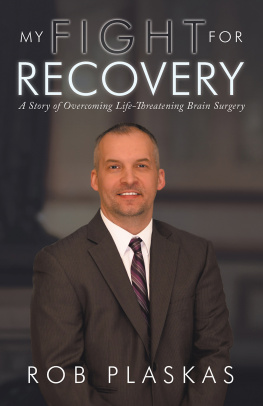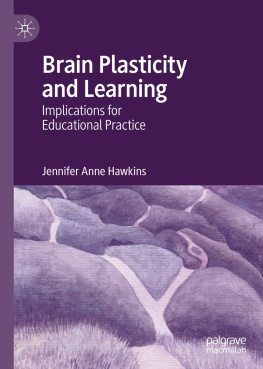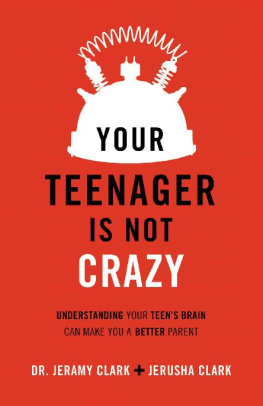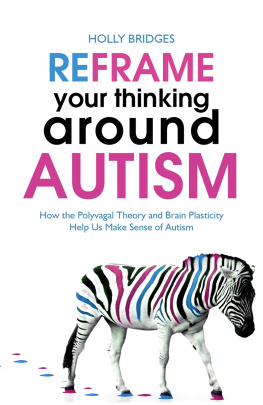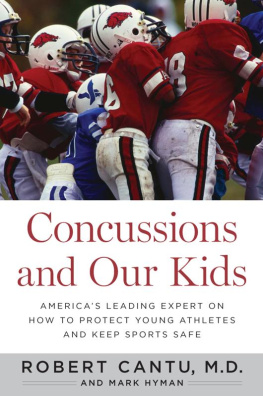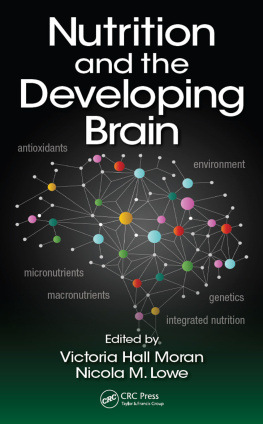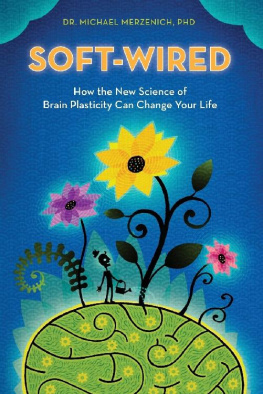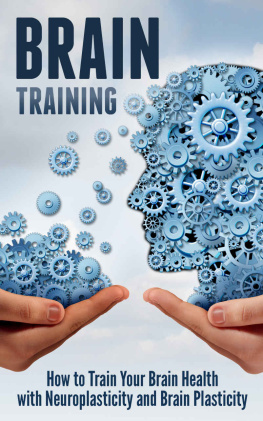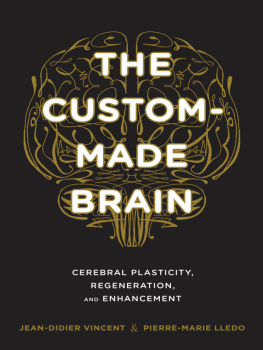Praise for The Ghost in My Brain
A remarkably informative discussion of brain injury.
Newsday
Elliotts transformative tale will be invaluable for patients with traumatic brain injury, families, and caregivers.
Publishers Weekly
An extraordinary book about the brain and the minda book that is hard to stop reading.
Andrew Ortony, Ph.D., Professor Emeritus of psychology,
computer science, and education, Northwestern University
Inspiring... Read it, first weep, then smile broadly!
Daniel Federman, Dean Emeritus, Harvard School
of Medical Education, and past president of the
American College of Physicians
I have diagnosed more than six hundred mild traumatic brain injury (MTBI) cases over thirty years of practice and know firsthand the devastating effects they can have on virtually any family. Dr. Clark Elliotts comprehensive and creative analysis of this pathological epidemic is uniquely insightful, accurate, scaryand most important encouragingfor those who are afflicted with this disorder.
Michael P. Szatalowicz, D.C., A.O., whiplash trauma specialist
ABOUT THE AUTHO R
Clark Elliott, Ph.D., has been a professor of artificial intelligence at DePaul University for twenty-seven years. He holds three teaching certificates for music; B.M. and M.M. (music) and M.S. (computer science) degrees; and a Ph.D. from Northwesterns Institute for the Learning Sciences with an emphasis on computer simulations of human emotion. He lives with his wife and daughter in Evanston, Illinois. He has raised four other children, studies tai chi and music every day, and continues as a casual marathon runner.
ClarkElliot.com
PENGUIN BOOKS
An imprint of Penguin Random House LLC
375 Hudson Street
New York, New York 10014
penguin.com
First published in the United States of America by Viking Penguin, an imprint of Penguin Random House LLC, 2015
Published in Penguin Books 2016
Copyright 2015 by Clark Elliott
Penguin supports copyright. Copyright fuels creativity, encourages diverse voices, promotes free speech, and creates a vibrant culture. Thank you for buying an authorized edition of this book and for complying with copyright laws by not reproducing, scanning, or distributing any part of it in any form without permission. You are supporting writers and allowing Penguin to continue to publish books for every reader.
eBook ISBN 9780698150140
THE LIBRARY OF CONGRESS HAS CATA LOGED THE HARDCOVER EDITION AS FOLLOWS:
Names: Elliott, Clark, author.
Title: The ghost in my brain : how a concussion stole my life and how the new science of brain plasticity helped me get it back / Clark Elliott, Ph.D.
Description: New York, New York : Viking, [2015]
Identifiers: LCCN 2015010566 | ISBN 9780525426561
Subjects: LCSH: Elliott, ClarkMental Health. | AmnesiacsUnited StatesBiography. | BrainConcussionComplicationsUnited States. | MEDICAL / Neuroscience. | MEDICAL / Healing. | BIOGRAPHY & AUTOBIOGRAPHY / Personal Memoirs.
Classification: LCC RC394.A5 E45 2015 | DDC 616.85/2320092 Bdc23
Figures and drawings by Donalee Markus
ISBN 9780525426561 (hc.)
ISBN 9780143108290 (pbk.)
Cover design: Spencer Kimble
Version_2
To the millions who suffer head injuries each year. There is hope.
CONTENTS
At Least We Can LaughPain and Humor
FOREWORD
BY DONALEE MARKUS, PH.D.
Clark Elliott was a mystery to me when we first met. Observing him through my glass front door, I saw that it took him two minutes just to find the doorknob with his hand. When I gave him the simplest of my assessment testscopying a geometric line drawinghis body went into bizarre contortions as he struggled to complete it. It hurt me to watch this brilliant man put so much effort into such a trivial task. In my decades-long practice in clinically applied neuroscience (CAN), this case was striking. During the two-hour evaluation session, I kept asking myself, What could have happened in the car accident eight years ago that all of these top medical doctors have missed? In thinking over my plan for rewiring his brain, I realized that most of Clarks cognitive and motor behaviors were likely tied to stress on his visual systems, and I wanted him to work in parallel with my highly esteemed colleague the optometrist Deborah Zelinsky, whom he went to see the following week.
Clark was an ideal client. He understood the complexity of the brain and the relationship between sensory input and behavior. And he was compliant, faithfully completing the rigorous cognitive exercises that I created for himthe brain puzzles he was to solve on a daily basis. Most important, he carefully documented his behavioral changes so that I could move him quickly through the exercises that would allow him to regain control of his personal and professional life.
Clarks story is remarkable. Through his scrupulously documented recovery, he gives a voice and provides hope to millions of people, referred to as the walking wounded, with mild to moderate traumatic brain injury. The plasticity of the human brain is both its power and its weakness. Although the life-sustaining parts of the human brain are hardwired, the cognitive parts (located in the neocortex) are not. The part of the brain that allows people to think, to plan, to hope, to dream, to understand language and math, and to recognize themselves and others, is highly malleable.
This plasticity allows people to change their minds and to control their behavior, but it is also this part that suffers the greatest loss from brain injury. Much to the frustration of doctors and patients alike, cellular damage is microscopic and may be diffuse throughout the brain so that conventional scanning technologies cannot detect it.
By the time high-functioning individuals with post-traumatic head injury notice that their memories are not what they used to be, or that they have difficulty thinking through a problem they could once have easily solved, massive brain damage has occurred on a microscopic level. Because their symptoms are medically unverifiable and therefore untreatable, they are usually dismissed as the walking wounded, destined to suffer the pain, frustration, and humiliation of not knowing how much longer their condition will last or how much worse it will become. The Designs for Strong Minds system I have developed to treat such clients who come to me is a program based on a neurocognitive model that relies on the brains plastic, reconfigurable nature, and uses attention, intention, and rehearsal to implement learning and behavioral change.
It is important to give credit to two individuals who contributed to Clarks cognitive restructuring success. Professor Reuven Feuerstein in 1981 introduced me to the original theoretical framework and the system that are the basis of my work, where the tools are context-free visual puzzles organized by logical structure, and the technique is mediation, to change the structure of the brain. It is from Professor Feuerstein that I learned Intelligence is plastic.... Cognition is modifiable at any age. And Christine Williams of NASA provided me with the opportunity to work with our top scientists, engineers, physicistsliterally our rocket scientistsfrom 1998 to 2005. The tools, more than three thousand paper-and-pencil instruments that I created for NASA (joined by almost ten thousand instruments for children), became the framework, the structure, and the workbooks for Clark to regain his high-level cognitive functioning skills.

